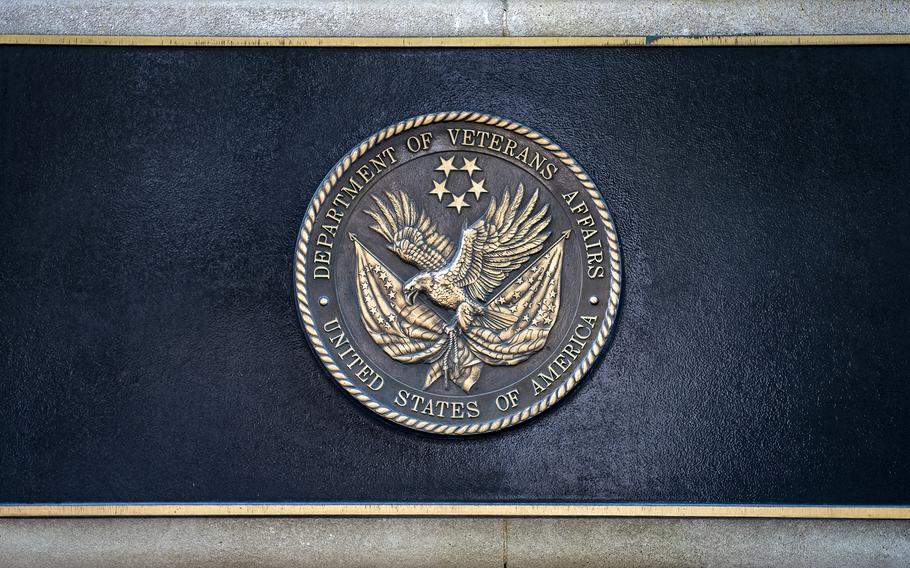
The VA logo is seen at an entrance to the Veterans Affairs building in Washington, D.C. on July 6, 2022. (Carlos Bongioanni/Stars and Stripes)
The Department of Veterans Affairs, in a historic shift, will provide abortion counseling and abortions in cases of rape, incest or if the pregnancy threatens the health of the pregnant veteran, at its federal health facilities throughout the country, including in states that ban or severely restrict the practice, the department announced Friday.
According to a draft of the rule change, the new policy overhauls health-care service provided to 9 million veterans and eligible family members; VA previously did not provide abortions of any kind or offer abortion counseling to patients considering the procedure.
There are 2 million female veterans in the United States, according to VA data, and about a quarter of them are enrolled in VA care.
"VA serves roughly 300k women of childbearing age, and women Veterans are VA's fastest growing cohort," VA spokesman Terrence Hayes said in an email. Once the rule is published, Hayes said VA will "immediately prepare to provide these services in as many locations as possible."
VA Secretary Denis McDonough in a statement called the change "a patient safety decision."
"Pregnant Veterans and VA beneficiaries deserve to have access to world-class reproductive care when they need it most. That's what our nation owes them, and that's what we at VA will deliver," McDonough said.
The move comes two months since federal protections provided by the landmark Roe v. Wade decision were overturned by the Supreme Court. Shereef Elnahal, VA's undersecretary for health, in a statement said VA made the change after speaking to veterans and health-care providers who "sounded the alarm" over state-level restrictions that came into place after Roe was overturned created a health risks for veterans and their families.
While the new policy is an expansion of veteran health-care benefits, the regulations closely resemble existing care within the Defense Department, which provides abortions at military hospitals using the same criteria. The active-military care is not widely used, with fewer than two dozen abortion cases on average every year, according to Pentagon data.
Still, advocates have pressed lawmakers and defense officials to help remove obstacles for elective abortions, pointing to military bases in many states that ban all abortions and the difficulty of traveling long distances. VA described a similar issue in the draft policy, saying some veterans and family members "may no longer be able to receive such medical services in their communities."
Under the new VA policy, medical providers will determine what meets the criteria of a pregnancy that endangers the health of the life of the pregnant person on a case-by-case basis. Veterans seeking to end a pregnancy that is the result of rape or incest need only to self-report and do not need to provide documentation, such as a police report, the department said.
With the department offering abortion services for the first time, it's unclear how quickly VA facilities will be able to bring on doctors who can perform the procedure, particularly in states where abortion is significantly restricted. One solution could be to seek care at civilian hospitals if veterans and eligible family members qualify. VA would foot the bill in those cases.